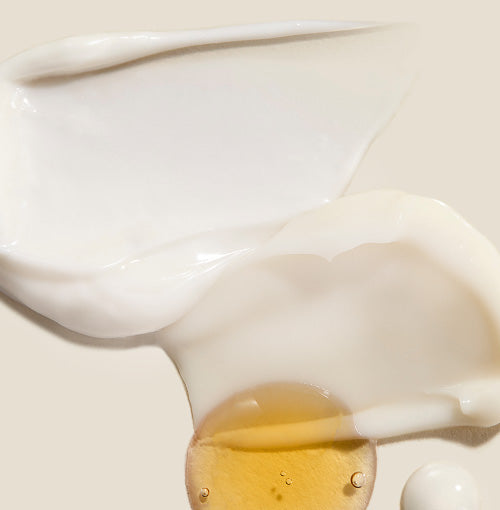Ceramides... What Are They and Why are They in Skincare?
Vitamin C, hyaluronic acid, and.... ceramides? This blog post will explore the skincare ingredient ceramide and cover topics, like,
- What they are
- Where they come from
- What kinds of products contain them
- Benefits
- Cons, and
- What kinds of skin they're good for
What are Ceramides?
Whether you're a skincare enthusiast or someone just starting out, you've probably heard about ceramides before. They are a popular ingredient in numerous skincare products, and for a good reason.
Ceramides are a kind of lipid, or fat molecule, naturally found in the outermost layer of the skin. They make up about 50% of the skin's barrier and help to prevent moisture loss, protect against environmental stressors, and maintain the skin's overall health and appearance.
Ceramides are made up of sphingosine, a fatty acid, and a type of alcohol. They are categorized based on the type of fatty acid they contain, with ceramides 1, 2, and 3 being the most abundant in the skin.
Where Do Ceramides Come From?
Ceramides are naturally produced by the body, but their production can be disrupted by various factors, such as aging, environmental stressors, and the use of harsh skincare products. This can lead to a compromised skin barrier and a host of skin issues, such as dryness, irritation, and inflammation.
In skincare products, ceramides can be derived from various sources, including plant oils, animal fats, and synthetic sources. Some commonly used plant-derived ceramides include those sourced from rice, wheat, and soybeans.
What Kinds of Skincare Products Have Ceramides?
Ceramides can be found in a wide range of skincare products, including moisturizers, serums, toners, and cleansers. They are particularly common in products marketed towards dry or sensitive skin types and anti-aging.
Benefits of Ceramides in Skincare
Ceramides offer several benefits for the skin, including:
- Improving the skin's barrier function: Ceramides strengthen the skin's barrier and prevent moisture loss, which can help to reduce dryness, irritation, and inflammation.
- Hydrating the skin: Ceramides can attract and retain moisture, helping to keep the skin hydrated and plump.
- Reducing the appearance of wrinkles: A healthy skin barrier can help to prevent premature aging and improve the overall appearance of the skin.
- Soothing sensitive skin: Ceramides have anti-inflammatory properties and provide a soothing effect on irritated or sensitive skin.
Cons of Ceramides in Skincare
Reactions to ceramides are rare, but can happen. Some skin may be ultra-sensitive to this particular ingredient and lead to breakouts. While most users experience the benefits of ceramides daily without effect, you can also check with your dermatologist or patch-test a small section of your skin before applying it to the desired area.
Who Could Benefit from Using Skincare with Ceramides?
Ceramides can benefit a wide range of skin types and concerns, but they are particularly helpful for people with dry, sensitive, or aging skin. If you struggle with dryness, redness, irritation, or fine lines and wrinkles, incorporating skincare products containing ceramides into your routine may help to improve the overall appearance and health of your uniquely beautiful skin.
Ceramides are a valuable skincare ingredient that can help to strengthen and protect the skin's barrier, hydrate the skin, and help reduce the appearance of fine lines and wrinkles. If you're looking for powerful ceramides to add to your skincare routine, check out our full collection of physician-grade, premium-quality skincare with ceramides.







Leave a comment